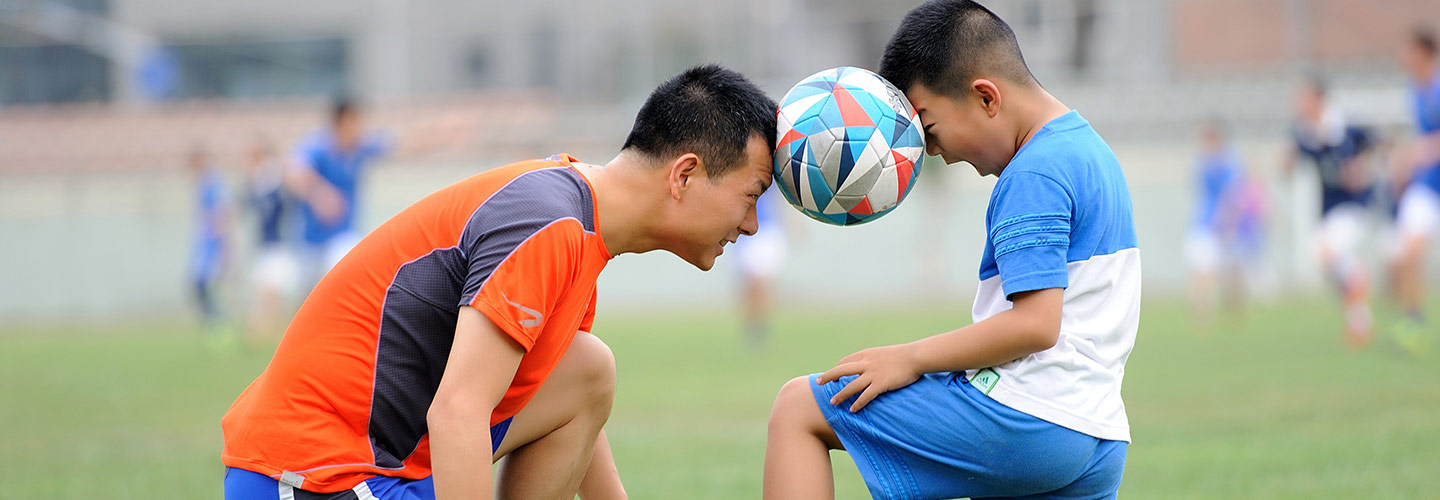Bad Parent Behavior at Youth Sports Events: More at Play than You May Think
- Home
- Blog

“Dave”* was the volunteer head coach of his seven year old son’s soccer team. To say that he loved coaching his son would be an understatement. Unfortunately, Dave’s passion at his son’s games would often cross the line into angry behavior. At times he would yell at his son, humiliating him in front of the other players. At other times he would yell at coaches from the opposing team, sometimes even walking across the field and intimidating them. In one game Dave met an opposing coach with a similar temperament. By mid-game Dave “got in the face” of the opposing coach. Instinctively the other coach pushed him away. In response Dave took a swing at him. Other parents quickly intervened, separated the coaches, and prematurely ended the game. Later that day Dave’s horrified wife said to him, “Get help or else.” He then came to me for treatment.
Initially, Dave was skeptical of therapy and would tell me he was only coming to “get out of the dog house” with his wife. His resistance softened as we began to examine the underlying unconscious causes of his anger outbursts. As he began to recount his many episodes of on-field eruptions, Dave began to feel ashamed of his lack of self-control. He then recalled that, as a boy, he was coached by a cruel and intimidating man. This coach, whose son was a player on the team, took every opportunity to berate and make fun of Dave and his younger brother, who was also on the team. Dave experienced a terrible sense of helplessness and guilt because he was unable to protect his brother, and felt (and repressed) humiliation and rage because he couldn’t defend himself, either. Making matters even worse, when Dave reported these experiences to his father, he was told to “suck it up” and “this will toughen you up for life as an adult.” Dave had repressed these memories completely. As they came back to him his anger outbursts toward his son, and his aggressive behavior toward the other coaches started to make sense, and he was able to give them up.
In our last session together Dave reported to me that he’d personally reached out and apologized to every single coach that he had ever intimidated. And while Dave loved coaching his son, he’s since decided to hang up his coach’s whistle and support his son from the sidelines.
Is there more to parents’ angry behavior at youth sports events than meets the eye?
We’ve all heard about or witnessed firsthand a parent’s passion crossing the line into angry behavior at their child’s sporting event. This scenario not infrequently unfolds as the game begins and one of the parents starts to pace the sidelines. Next, he’s offering “advice” to the game official, “Ref, open your eyes!” Next, he may begin yelling at the opposing team’s players – children who he believes are cheating. In his state of mind, he even targets his own child for scathing criticism. Sadly, this type of behavior is all too common, and, it can get much worse, sometimes involving a physical altercation. What lies behind it?
Consider the issues below that represent a few of those typically present at youth sports events.
Intensity – The very nature of these events is emotionally and physically intense for children and their spectator parents. Feelings surrounding competition, competency, winning and losing, and self-esteem abound.
Vulnerability – Seeing one’s children vulnerable out on the field of play is unsettling. Powerful protective instincts and impulses are elicited.
Publicity – Youth sporting events take place in front of others. Parents may over-identify with their children and feel painfully self-conscious, particularly when their child performs poorly.
Injustice – These events have rules and officials, but inevitably a few bad calls occur in each and every game. This may offend the sensibilities of some parents to the extent that they lose perspective and lash out.
Fairness – Some players get more playing time than others if the focus is on “winning at all costs,” which “isn’t fair to my child” given that the idea is to go out and have fun, and promote the values of hard work, fair play, and teamwork.
Helplessness – Many parents have experienced a child who is crying uncontrollably on the field of play. On the sidelines, the parents are in anguish. Every parent wants to be able to protect his or her child. It can be difficult to restrain oneself and not intervene, but usually remaining calm and patient is what will help one’s child the most.
Narcissistic Self-involvement – Some parents are narcissistically over-involved in their child’s play, with their self-esteem rising or plummeting based upon each and every example of their child’s level of play and competence. When their child plays well, the parent is overly exuberant. And when their child plays poorly, or is underutilized, the parent’s self-esteem plummets, and excessive anger may result. This may result from a parent with a narcissistic personality disorder, or one who is suffering from deeper, longstanding feelings of humiliation that get reactivated. Psychoanalytic psychotherapy can often help.
Emotional triggers at youth sports events can stimulate dramatic responses in some parents
These and other emotional triggers at youth sports events can stimulate dramatic responses in some parents. Some reactions may be prideful and joyful, while others have created embarrassing situations and even criminal prosecution for assault. Still, parents involved in more extreme loss of control of their behavior often don’t understand why. Thoughtful introspection may reveal answers for some. Anger management techniques may help. Other parents may benefit from the care of a trained psychotherapist to help them examine their behavior, understand what drives it and learn strategies to maintain their self-control, keep a balanced perspective and avoid behaving badly at their children’s sports events. Whether it’s the thrill of victory, or the agony of defeat, at the end of the day it is about sharing quality memorable time with your child, while modeling adult behavior.
.png?width=144&height=144&name=Untitled%20design%20(34).png)



